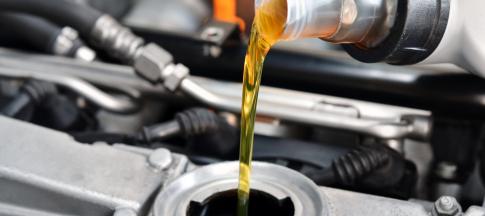
Cars are complex and can run into problems easily. A fault with your car can make a breakdown more likely, but it can also cause an issue if you try and claim, so it's good to know the signs of a car issue and what can cause a breakdown.
We’ve put together a list of the most common reasons for breakdowns. Plus, we explain what to do if you do breakdown and some handy tips on how to avoid a breakdown.
What to do if you break down
If you break down on the road, follow these key steps:
- Stop safely. Put your hazard warning lights on and keep your side lights on to let other drivers know you’ve broken down. Try and take the nearest exit or stop on the hard shoulder if you break down on the motorway.
- Get out of the car. Get out of your car once you’ve stopped safely, ideally through the passenger-side door to avoid passing traffic.
- Call your breakdown provider. Call your breakdown provider to arrange for your car to be recovered or repaired. They’ll usually ask for your customer reference number, so make sure you keep it somewhere in your car.
- Call a breakdown recovery service if you don’t have cover. If you don’t have breakdown cover, you can still call a recovery service but will have to pay an upfront fee.
If you have breakdown cover with us, please head to our breakdown page or call 0330 102 0804.
Check out our breakdown cover guide to learn more about breakdown tips and cover.
The most common causes of breakdowns
1. Battery
Battery failure is caused by a few different reasons, including:
- a loose terminal connection
- battery fault
- leaving your lights on
- old age
- not using your car
- only making short journeys
- a problem with the alternator
Most car batteries have a guarantee of three to five years, so if you have an old battery and it’s starting to struggle, it’s worth replacing it.
2. Tyres
Punctures can be caused by hitting a pothole or kerb, running over a sharp object like a nail or screw, a faulty valve or simply a worn tyre tread.
The best way to avoid tyre failure is to check the pressure and tread of each tyre regularly and don't ignore the tyre pressure warning light if it appears on your dashboard.
Ideally, you should always have a correctly inflated spare tyre (full size or space saver).
If that's not possible, buy an emergency puncture repair kit. These include a foam that re-inflates the tyre and seals the hole.
Choose a kit with a water-based foam that can be flushed out after use and doesn't damage the tyre.
3. Engine and exhaust
There’s a lot of different ways your engine could cause you to break down, including:
- blown head gasket
- timing belt
- oil pump failure
- oil leaks
- ageing spark plugs
- faulty fuel and ignition systems
There may also be issues with your exhaust system, such as:
- corrosion
- cracks
- broken brackets
- increased levels of pollutant gases
To avoid engine or exhaust failure, keep up with routine maintenance jobs and stick to your car's service schedule (usually a full service every year).
4. Electrical
Electrical problems can be some of the most frustrating reasons for a vehicle breakdown because the reason isn't always obvious.
You’ll usually need to go to a garage where mechanics can carry out a fault diagnosis by hooking up to the car's onboard computer (the electronic control unit, or ECU) and read error codes.
Electrical problems can range from something as simple as an interior or exterior bulb failure, to worn out spark plugs, or a faulty starter motor.
You should always keep an eye on your dashboard warning lights. If you're unsure what a light means, pull over when it's safe to do so and check your owner's manual, or look it up online.
If the warning is serious, get immediate help from your breakdown provider or a garage.
5. Steering, suspension and brakes
Steering defects include issues with power steering units (including fluid leaks), plus worn components in the steering rack.
Faulty dampers, or shock absorbers, are one of the most common failures in a car's suspension system. Sometimes it's just wear and tear, but it's also possible that the fluid has started to leak.
Ignoring any problems with your brakes can put you and other drivers and pedestrians at risk.
Some of the warning signs include:
- brakes pedals that feel soft, spongy or offer no resistance
- your car pulling to one side
- feeling a vibration through the steering wheel
Your brakes are checked during your car’s annual service and MOT. Some garages and tyre-fitters will also carry out free brake checks.
6. Fuel
Accidentally filling up your car with the wrong fuel is more common than you might think. A Go Compare study found that one in five drivers admit to having mis-fueled their car.
Running out of fuel is another common reason for roadside rescues.
Other fuel-related faults which can cause a breakdown include problems with:
- fuel pump
- throttle assembly
- blocked fuel injectors and filters
If you mis-fuel your car and realise before starting your engine, leave the engine switched off (don't even put your key in the ignition) and let the staff at the service station know.
7. Clutch
If you drive a manual car, your clutch can wear out or the system may develop a leak. A clutch should last anywhere between 60,000 to 80,000 miles.
Here are a few warning signs that there’s an issue with your clutch:
- a clutch pedal that feels spongy or makes an unusual noise
- poor acceleration
- difficulty shifting gears
- 'slipping' clutch which causes a momentary loss of acceleration
Never 'ride the clutch'. In other words, don't keep the clutch pedal partially pressed down as it pushes the pressure pad against the clutch plate but doesn't engage completely. This creates more friction and wears out the clutch faster.
Instead, keep your foot well away from the clutch unless you’re actually changing gear. Don’t slow down for traffic lights with the clutch semi-depressed and don't treat your clutch pedal like a footrest.
8. Alarms, locks and keys
If you're having issues with the car alarm, try your second fob (if you have one). If this works, you just need to change the battery in your fob.
If neither work, there may be a fault with the fobs (you need a new one) or an electrical problem with a sensor, in which case you should get professional help.
Other issues include:
- keys locked inside vehicles
- broken keys
- keys stuck in ignitions
- jammed steering locks
Check out our guide on what to do if you’ve lost your key.
9. Charging
An alternator can fail at any time. Signs that it might be failing include:
- dashboard warning light
- flickering headlights
- a grinding, clanking or screeching noise coming from your engine bay
The battery warning light should warn you when the alternator isn’t charging the battery.
10. Cooling
You might notice your temperature warning light turn on or, worse still, steam coming out of your engine bay.
Either way, pull over in the nearest safe spot, turn off your engine, get all passengers away from the car and road, and call for breakdown assistance.
If you're more confident with cars, you could check the coolant. Make sure you open the bonnet and leave the engine to cool down for at least 30 minutes before checking it.
Remember to never unscrew the coolant tank cap of an overheated engine, as it’s pressurised and could cause severe burns.
If there’s no coolant, you probably have a leak and there may be a pool of liquid underneath your car. Otherwise, it might be a faulty thermostat, cooling fan or water pump.
We also have a handy guide on how to check your engine's coolant and other parts of your car.
Admiral breakdown cover
If you have car insurance with us, get in touch to talk about adding breakdown cover to your policy.
If you take out breakdown cover with us, your cover will start 48 hours later if you add it mid-policy term. If you're adding it to a new policy, your breakdown cover will start straight away.
I'm an experienced journalist, digital editor and copywriter, now specialising in motoring. I’m editor of Automotive Blog and have worked across the media in newspapers, magazines, TV, teletext, radio and online for household names including the BBC, GMTV, ITV and MSN. I’ve produced digital content in the financial sector for Lloyds Bank, Nationwide and the Money Advice Service. I'm married with two children and live near Bath in Somerset.



